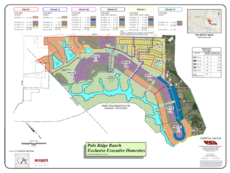
Property Tax Management And Due Diligence Analyses
Property Tax Management
DTA provides property tax management consulting services to public agencies, developers, and homebuilders, including:
- Property tax liability review, reporting, and payment;
- Preparation of new construction exclusion applications;
- Cash flow projections of developer/builder property tax liabilities through project build-out;
- Projection of effective property tax rates and preparation of sample tax bills for prospective homeowners; and
- Preparation of special tax and assessment disclosure documents.
DTA builds a property tax database for each project,
starting with the County-secured tax roll. Project, tract, lot, building, tax bill, home closing, and property tax pro ration data are added. Records are maintained for every lot, including common areas, private streets, etc. Property tax assessments are compared with closing statements to identify errors. New construction exclusion applications are filed where applicable. Property tax liability reports can easily be printed directly from the database and grouped by county, project, tract, etc.
DTA's property tax analyses are predicated on a detailed review
of the relevant project and property tax documentation. Every analysis begins with a thorough review of the project assumptions and underlying property tax liens. Property tax liens are identified through a review of title reports, including exceptions, and contact with the applicable public agencies.
Property Tax Due Diligence Evaluations
DTA assists land developers and home builders in their due diligence efforts prior to the purchase of undeveloped lots. DTA determines property tax obligations by identifying all site specific payments, including supplemental ad valorem taxes, standby charges, special taxes and assessments, and other public liens. This process requires close scrutiny of title reports (for both active and inactive property tax liens) and contact with the applicable public agencies.
DTA utilizes its expertise to quantify the tax obligations for various development scenarios as home sizes, lot sizes, and home prices can vary. Moreover, tax obligations are projected in accordance with both the maximum allowable tax rates and tax levies that are anticipated based on projections that can be substantially less than the maximum rates. DTA also identifies the key events triggering reassessments or changes in special tax levels and any other issues the developer must consider as a result of the assessment/special tax apportionment methodologies.


